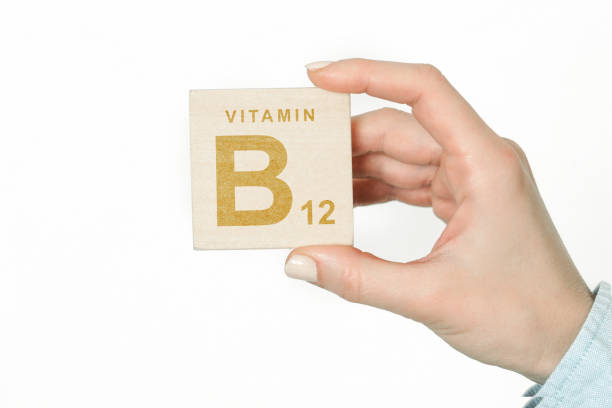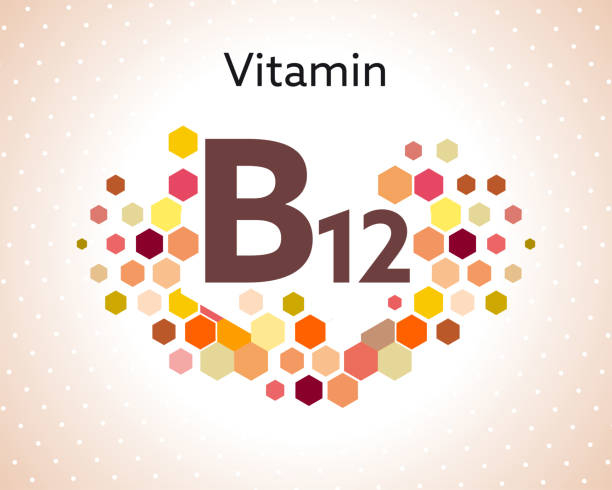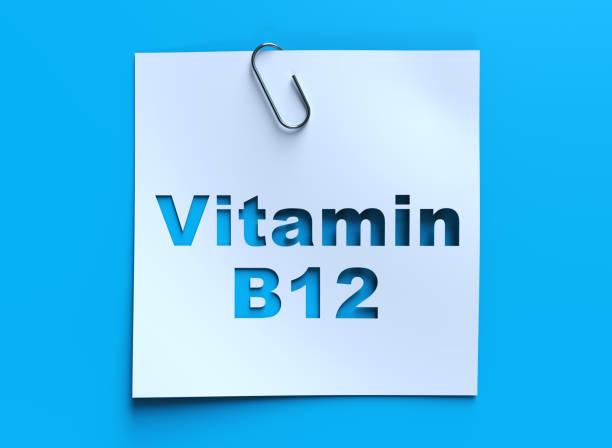Top 8 Health Benefits of Vitamin B12
Cobalamin, often known as vitamin B12, is a vital vitamin for your body. It is naturally present in animal products, but it may also be obtained as an oral ... read more...supplement or injection, and it is added to some diets. Your body may experience amazing health benefits from vitamin B12, including an increase in energy, an improvement in memory, and protection against heart disease. Here are the greatest vitamin B12 health advantages, all supported by science.
-
Red blood cell production in your body is greatly aided by vitamin B12. Red blood cell production is reduced and cannot properly grow when vitamin B12 levels are low. When vitamin B12 is deficient, red blood cells, which are normally tiny and rounded, grow to be bigger and often oval. Megaloblastic anemia is brought on by the red blood cells bigger and atypical form, which prevents them from entering the circulation from the bone marrow at the proper pace.
Your body doesn't have enough red blood cells to provide oxygen to your important organs when you are anemic. Weakness and weariness are possible consequences of this.

Helps With Red Blood Cell Formation and Anemia Prevention 
Helps With Red Blood Cell Formation and Anemia Prevention -
For a pregnancy to be healthy, vitamin B12 levels must be adequate. According to studies, a fetus's brain and nervous system need enough B12 from the mother to develop normally.
Early in pregnancy, vitamin B12 deficiency can raise the chance of birth abnormalities such as neural tube disorders. Additionally, a mother's lack of vitamin B12 may result in a miscarriage or early delivery. According to one study, women with vitamin B12 levels below 250 mg/dL were three times more likely than those with appropriate levels to have a child with birth abnormalities. In comparison to women with levels above 400 mg/dL, the risk was five times greater for women with a vitamin B12 deficiency and levels below 150 mg/dL.

May Prevent Major Birth Defects 
May Prevent Major Birth Defects -
Your central vision is mostly affected by the eye condition macular degeneration. Age-related macular degeneration may be reduced by ensuring appropriate vitamin B12 levels. According to research, taking vitamin B12 supplements may help decrease homocysteine, a kind of amino acid that is found in your circulation. Age-related macular degeneration has been linked to higher homocysteine levels in the blood. Research with 5,000 women aged 40 or older found that taking vitamin B12, folic acid, and vitamin B6 supplements may lessen this risk.
Compared to the placebo group, the group that took these supplements for seven years saw fewer incidences of macular degeneration. Any form of the illness carried a 34% reduced likelihood of occurrence, whereas more severe forms carried a 41% lower risk. Ultimately, further research is required to completely comprehend vitamin B12's contribution to macular degeneration prevention and visual health promotion.

May Reduce Your Risk of Macular Degeneration 
May Reduce Your Risk of Macular Degeneration -
Your mood could be enhanced by vitamin B12. There is still much to learn about how vitamin B12 affects mood. The neurotransmitter serotonin, which controls mood, is synthesized and metabolized with the help of this vitamin. Therefore, a vitamin B12 shortage may result in less serotonin being produced, which might result in depression. Studies back up the usage of vitamin B12 supplements to lessen the symptoms of depression in those who are vitamin B12 deficient.
According to one study, those who got both antidepressants and vitamin B12 were more likely to experience reduced depressive symptoms than those who just received antidepressants. This was true for persons with depression who also had low vitamin B12 levels. Insufficient vitamin B12 was linked to a twofold increased risk of severe depression, according to another research. High vitamin B12 levels have also been associated with improved treatment results and a higher likelihood of recovering from severe depressive disorder (MDD). Although the evidence does not yet support the idea that vitamin B12 supplements have the same impact on people with normal B12 levels, it is possible that they can benefit those with a deficiency's mood and sadness.

May Improve Mood and Symptoms of Depression 
May Improve Mood and Symptoms of Depression -
Memory loss has been linked to vitamin B12 insufficiency, particularly in elderly persons. The vitamin could help prevent brain atrophy, which is the loss of neurons in the brain and is frequently linked to dementia or memory loss. One research on individuals with early-stage dementia found that taking supplements of omega-3 fatty acids and vitamin B12 delayed mental loss.
According to another research, even vitamin B12 levels that are somewhat below average can affect how well people remember things. As a result, even in the absence of a clinically confirmed deficit, taking this vitamin in supplement form may improve memory. To draw reliable conclusions on the impact of vitamin B12 supplements on memory and cognitive function, more study is required.

May Benefit Your Brain 
May Benefit Your Brain -
Supplemental vitamin B12 has long been recommended as the go-to product for an energy boost. Although they don't always offer energy individually, all B vitamins are crucial for your body's ability to produce energy. There is currently no scientific proof that vitamin B12 supplementation can increase energy in those who have adequate amounts of this vitamin.
On the other hand, if you have a serious vitamin B12 deficiency, taking a supplement or boosting your consumption would probably boost your energy. In actuality, loss of energy or exhaustion is one of the most prevalent early indicators of vitamin B12 insufficiency.

May Give You an Energy Boost 
May Give You an Energy Boost -
Homocysteine, a common amino acid, has been connected to an increased risk of heart disease. Your homocysteine levels rise if you have a severe vitamin B12 deficiency. According to studies, vitamin B12 helps lower homocysteine levels, which may lower your chance of developing heart disease.
However, there is presently no data to support the effectiveness of vitamin B12 supplementation in this area. Therefore, more investigation is required to determine how vitamin B12 affects heart health. Vitamin B12 can decrease blood homocysteine, a type of amino acid that is associated with an increased risk of heart disease. However, research does not currently support the claim that vitamin B12 reduces this risk.

May Improve Heart Health 
May Improve Heart Health -
A sufficient amount of vitamin B12 is required to support healthy hair, skin, and nails since this vitamin is essential for cell development. In actuality, low vitamin B12 levels can result in a number of dermatological symptoms, including angular stomatitis, vitiligo (the loss of skin color in areas), hyperpigmentation, and nail and hair abnormalities (inflamed and cracked mouth corners).
When vitamin B12 insufficiency is treated with supplements, dermatologic symptoms have been proven to improve. However, taking a supplement is unlikely to help your skin, nail strength, or hair health if you are well-nourished and not vitamin deficient.

Supports Healthy Hair, Skin and Nails 
Supports Healthy Hair, Skin and Nails





























